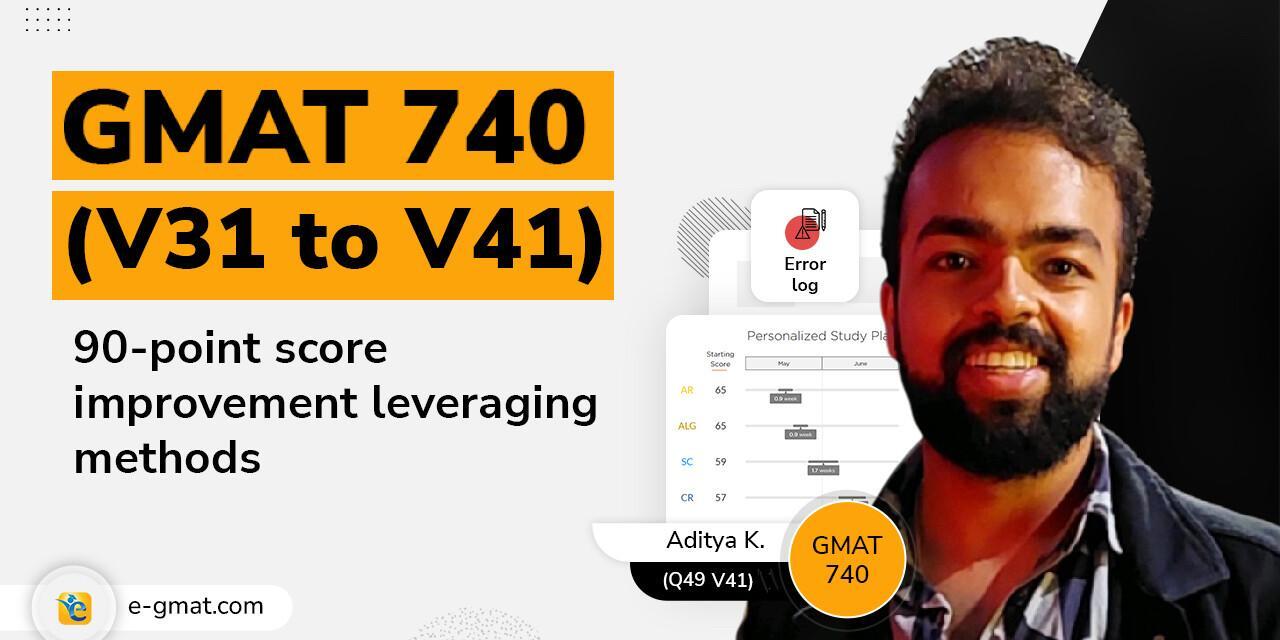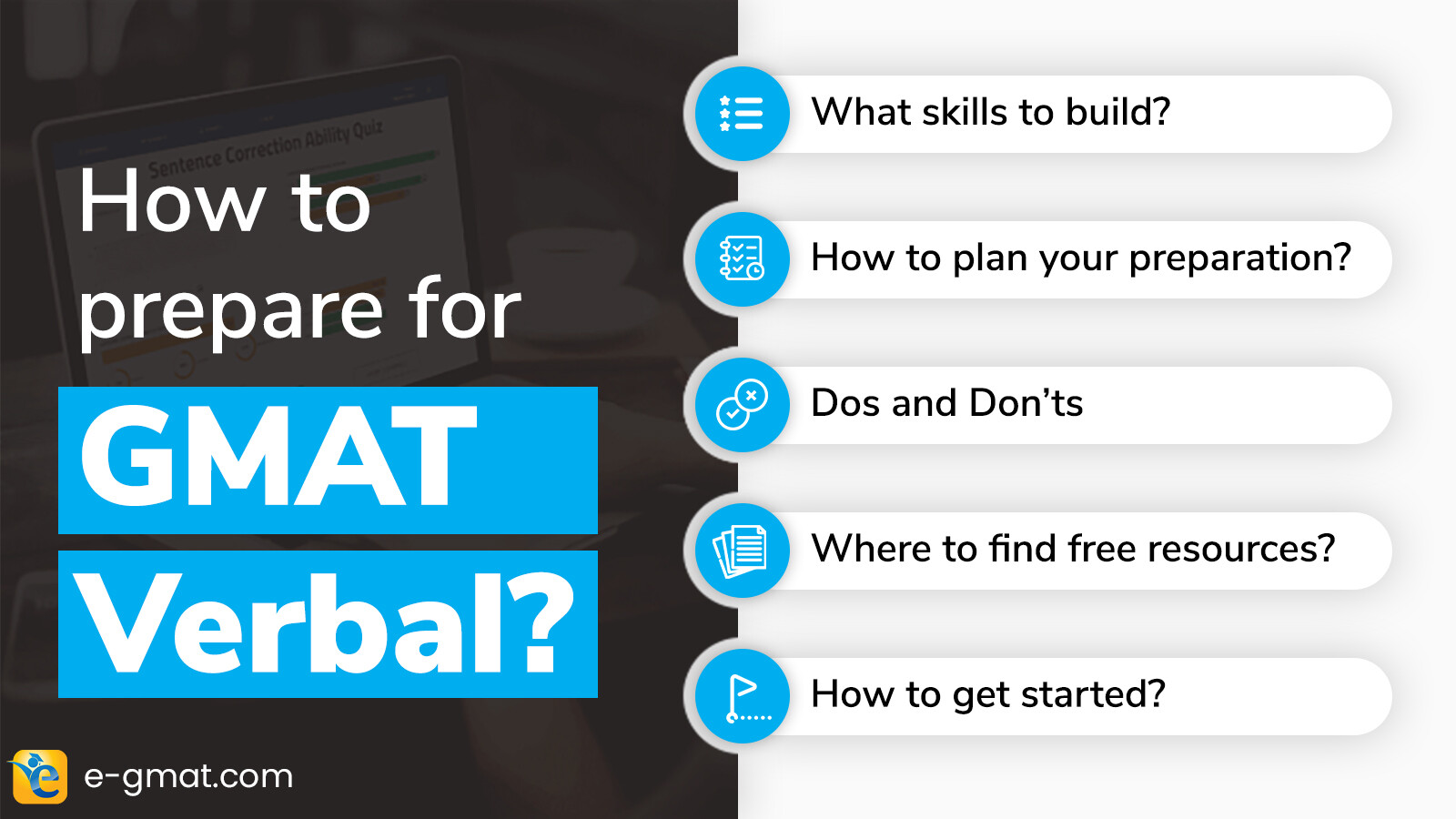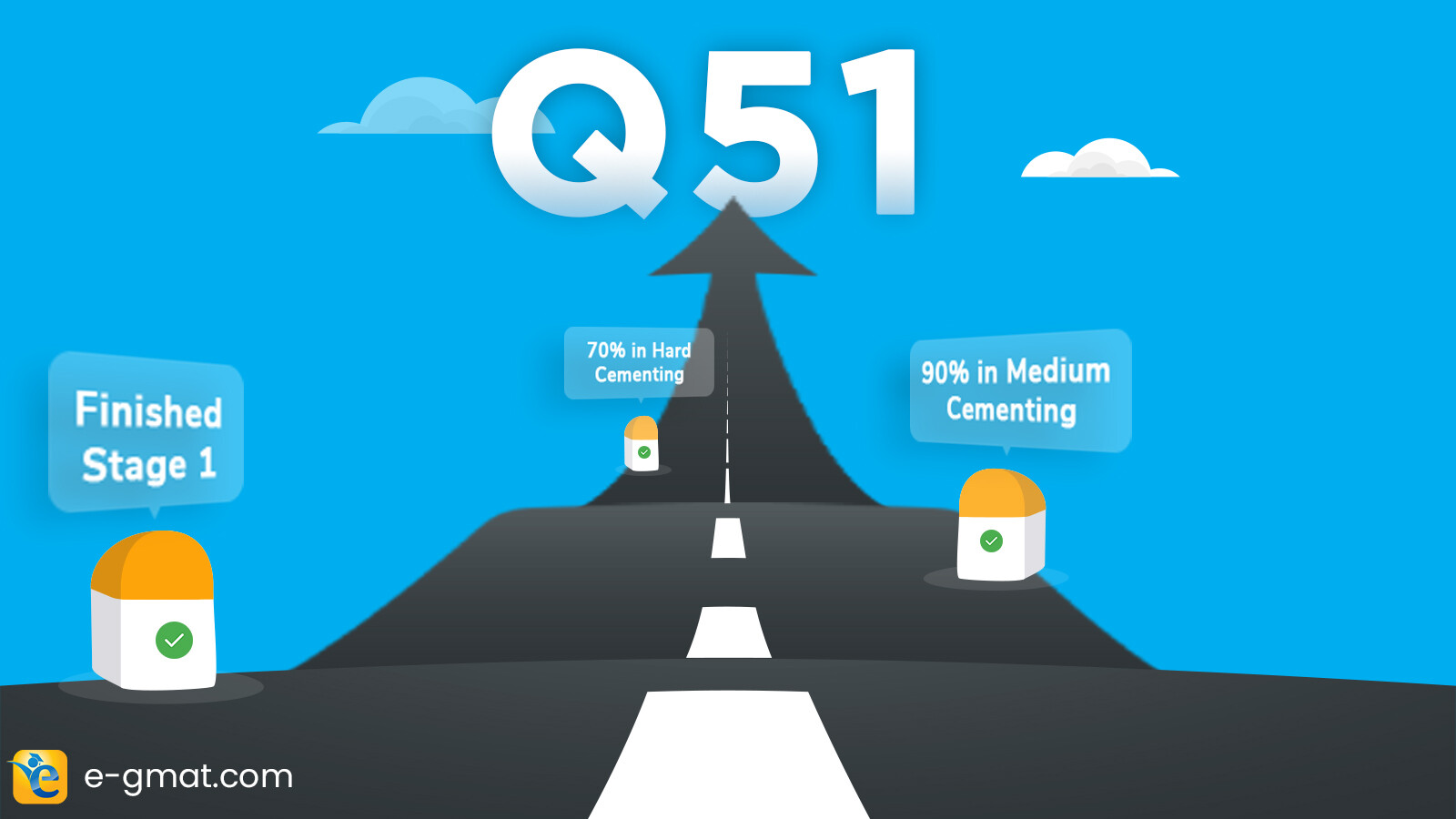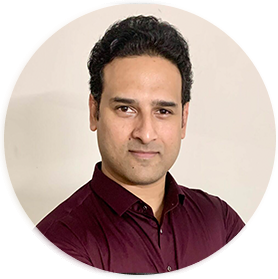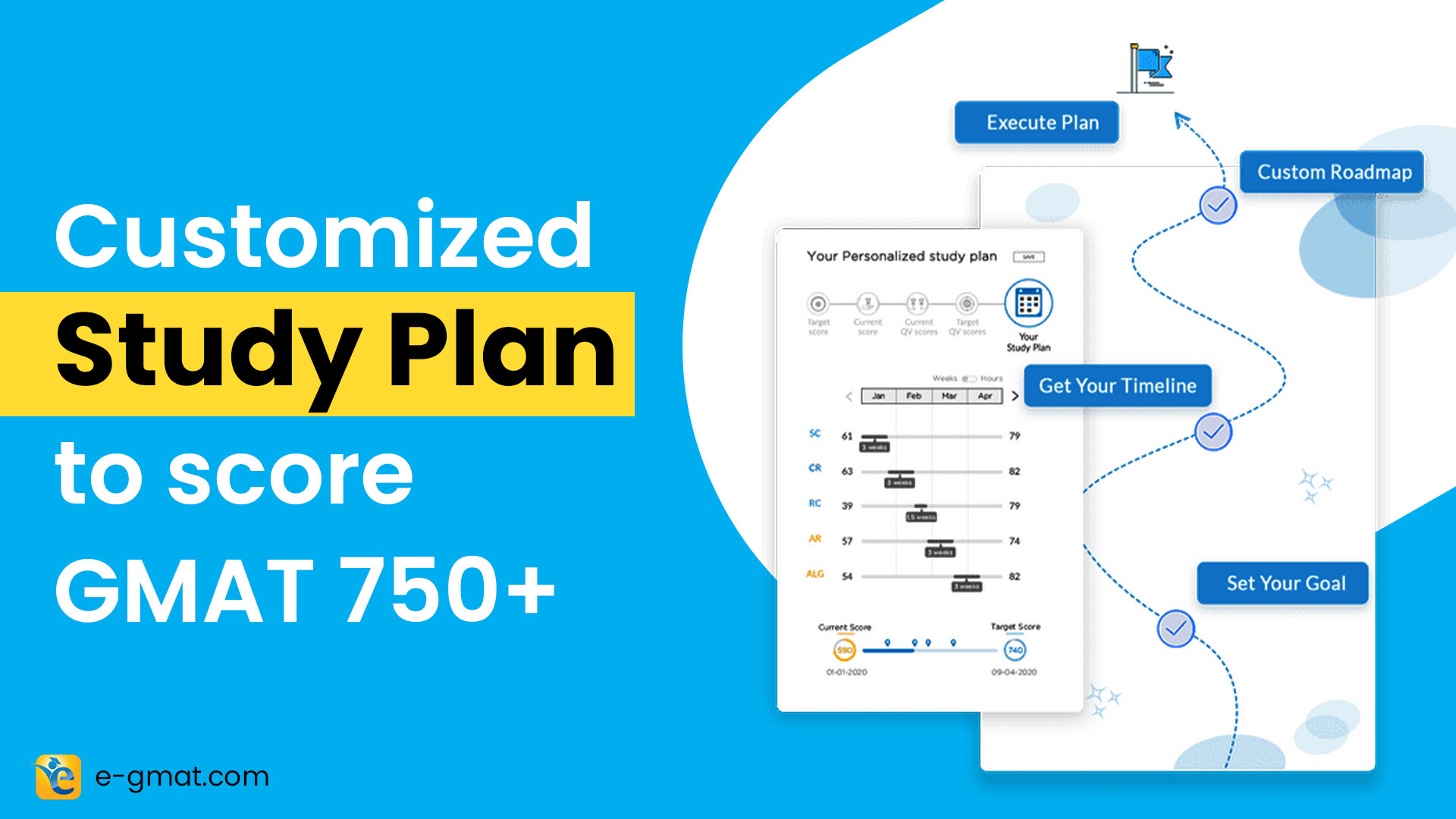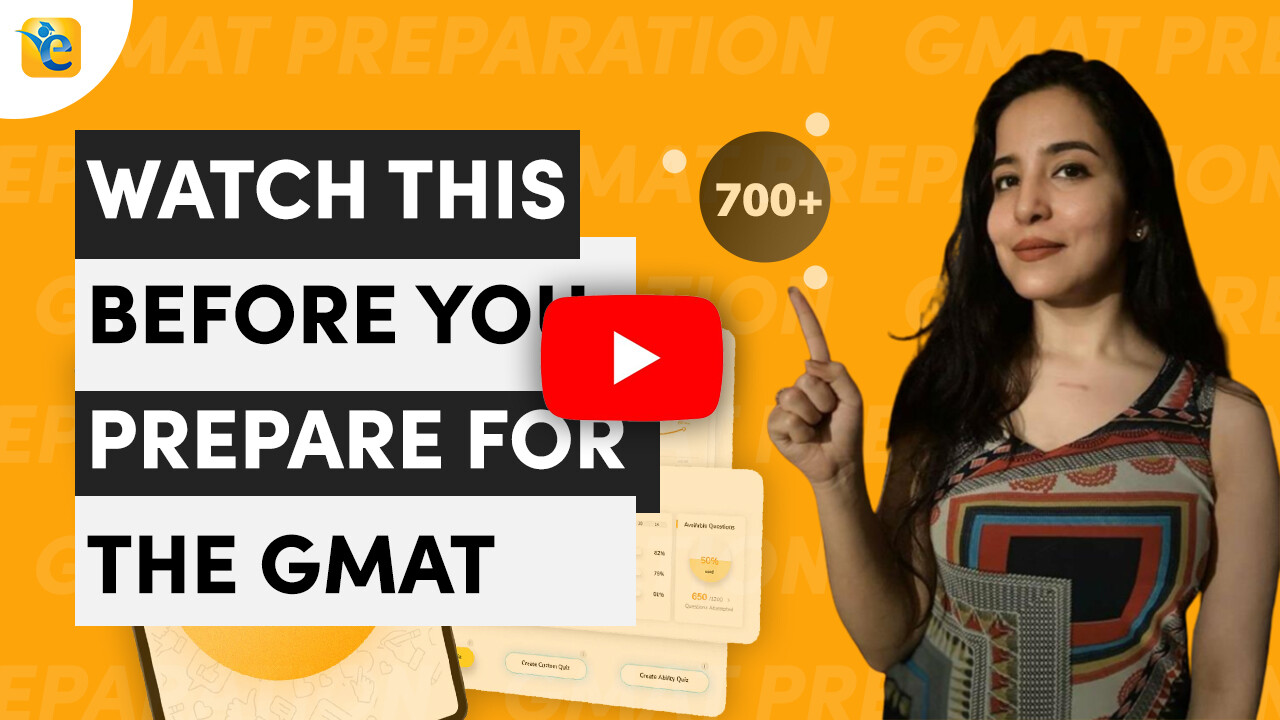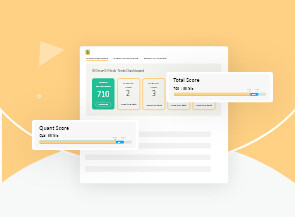GMAT 740 (Q49, V41) scorer, Business Analyst Aditya scored 650 on his first attempt at GMAT. He was unprepared for his first attempt. However, he made sure that he learned from his experience and set an uncompromising target for his second and final go at the GMAT.
Given his confidence in quant, he was looking for a prep course to strengthen his verbal skills. On his seniors’ recommendation, he found that e-GMAT is the best course for quant preparation. Only to later discover the efficient methods of e-GMAT are equally great for verbal as well.
As he began, Aditya never stopped improving on every skill he fell short of during his first attempt at the GMAT. While optimally utilizing the platform for quant and verbal skill building, Aditya also implemented many of his own strategies to ensure he did not leave any stone unturned on his mission to ace the GMAT.
Watch the interview to learn about Aditya’s 90-point improvement journey from V31 to V41 and the 97th percentile on the GMAT.
Rajat: Congratulations on 740. A 90-point improvement over your prior attempt in December of 2021. So how does it feel?
Aditya: It feels great and very relaxed. I mean, after scoring a 650 in December, and now 740 is a significant improvement. I was not expecting it. I can now get into my second phase of this journey confidently.
GMAT preparation by self-studying with free resources
Rajat: Let’s go back to your first attempt in December 2021, where you scored 650(Q49, V31). How did you prepare, and for how long?
Aditya: I spent one and a half months preparing, but I started at zero level as I didn’t know anything about GMAT. I was unaware of how adaptive algorithms worked and didn’t even have much practice material. I’d prepare with the GMAT club and other free resources. I didn’t even go through all the questions in the GMAT official guide. So even though I was unprepared for that exam, I am glad I attempted, as I learned from the experience of taking the actual GMAT test. I thought I was good at quant, but my score in that attempt, Q48, clearly did not reflect that.
Rajat: How did you learn about e-GMAT, and what made you take the subscription in May 2022?
Aditya: I reached out to my seniors who’d scored well in the GMAT, and they recommended e-GMAT, especially for quant. However, I was not convinced yet, and I needed help more with verbal, so I looked for other options.
Meanwhile, I started studying Sentence Correction in Verbal with free resources online, as it was my weakest point. And I came across one of the e-GMAT’s free videos on verbal-ing and Verb-ed modifiers. These were the topics I’d always get wrong, and I didn’t know why I was faltering. After going through the video, the concept became crystal clear to me, and that’s when I decided to go for e-GMAT for verbal, if not for quant, as recommended by my seniors.
I came across one of the e-GMAT’s free videos on verbal-ing and Verb-ed modifiers. These were the topics I’d always get wrong, and I didn’t know why I was faltering. After going through the video, the concept became crystal clear to me.
So, I started in May and set my target to 750. I began with quant because I was pretty comfortable with it, and I knew I could pace it, and it’d leave me with a reasonable amount of time for verbal. PACE Architecture really helped me pace the quant section. The algorithm enabled me to skip topics I was already good at.
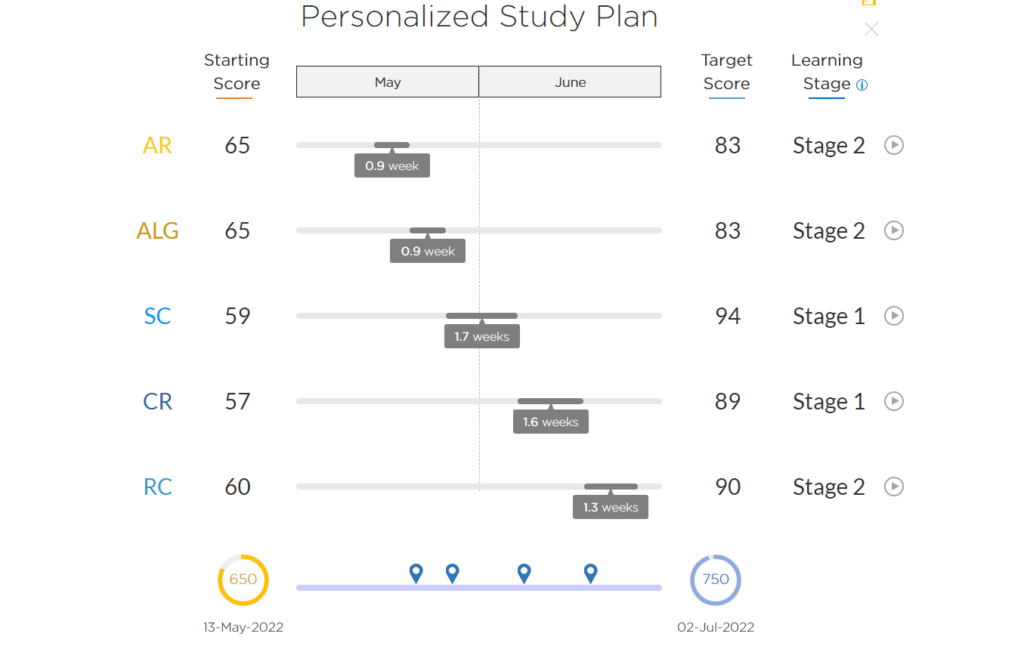
Rajat: Pace personalized your quant preparation. What was the value addition because of that?
Aditya: I gave myself three months and wanted enough time for both quant and verbal. I decided I’ll spend two months on concept files and the last month with mocks. However, I realized the course was massive, and I did not want to skip videos or anything essential to save time. But in quant, PACE helped me optimize my time while ensuring that I did not skip anything I did not know. There were a few topics that I completely skipped, such as circles.
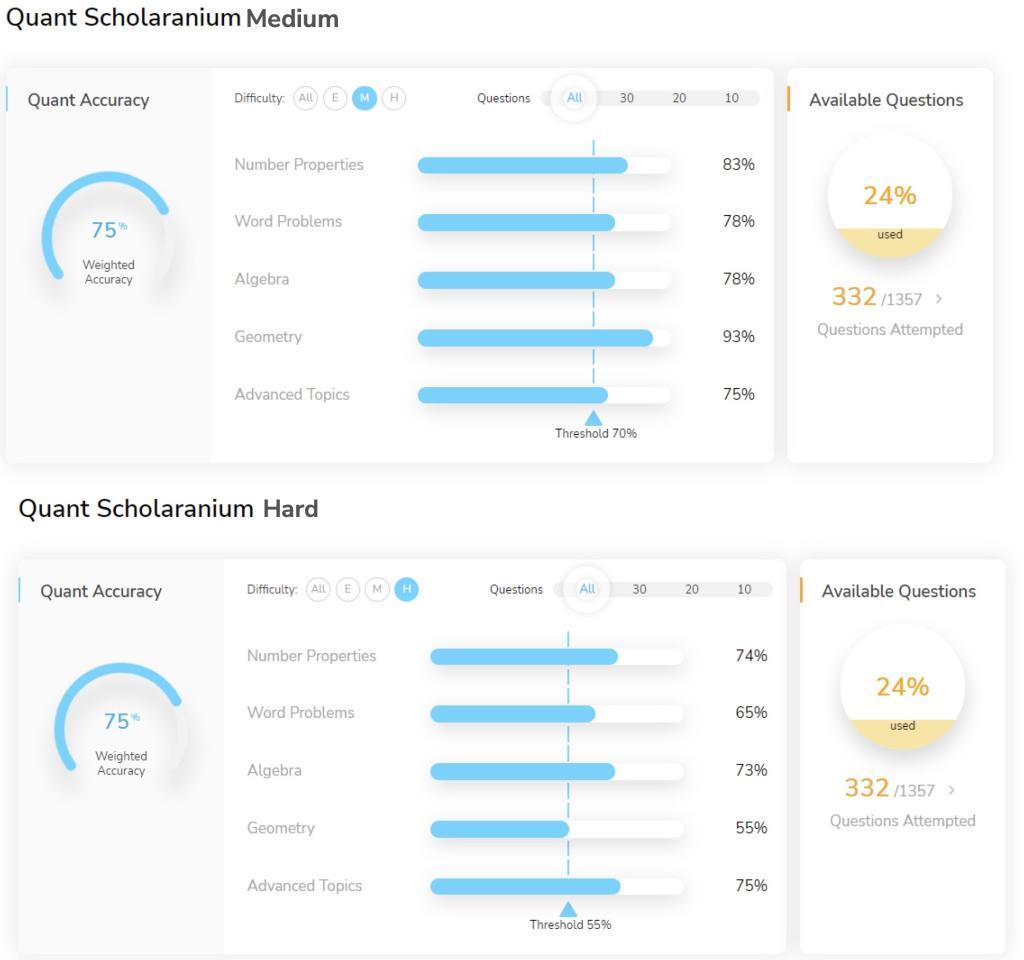
Rajat: I am looking at your profile, and I can see you saved about 9 hours in Algebra and 17 hours in quant prep.
Aditya: Another thing I noticed is that I could score well in the diagnostic quiz, but in concept quizzes, I was missing on basics despite being able to do hard questions. The course highlighted these small things, which are apparently also tested in the GMAT.
The quant course and PACE really worked well for me. After a couple of topics, I was confident that whatever the PACE told me I needed to do, was accurate.
The quant course and PACE really worked well for me. After a couple of topics, I was confident that whatever the PACE told me I needed to do, was accurate.
Importance of meaning in GMAT verbal
Rajat: What did you start your verbal course with?
Aditya: I started with SC because I knew I’d have to spend most of my time on it. I even went through some of the concept files twice. I’d keep screenshots of the rules to go through them in my free time. The most important thing I noticed in GMAT is that you must understand the meaning of the question to be able to solve it.
There are always 2-3 grammatically correct answer choices, and in many cases, some of those would convey a distorted meaning. More than the grammar rules, the meaning-based approach is important to find the right answer choice in such questions. I used to get these questions wrong during my first attempt at GMAT.
Read this article to learn How to score above V40 in the GMAT verbal. Get some important and effective tips from V40+ scorers.
Even after completing the SC course, I’d take a lot of time with custom quizzes. I started to do them in relaxed timing when I could not score well in standard timing. I studied 100s of questions and made notes while reviewing them. I realized my biggest problem was I could not understand the meaning of the questions. Initially, I followed the error log template, but later I started making my own notes where I’d mention the mistakes and why. That’s when it became clear that I only made meaning-based errors. I decided to make sure I never repeat those mistakes again.
But again, 2-3 days before the exam, I repeated one of those mistakes as another reminder to go back and check my notes.
Rajat: In fact, Payal held an ability booster session a few days back where we tried focusing on the students who’d done well in the cementing and helped them go from 80th percentile to 95th percentile ability. We focused on why you made those mistakes. She held two of those sessions.
Aditya: Error log or making notes on your mistakes is important. You must make sure that you analyze your mistakes carefully.
The important thing is that you identify and fix the gaps in your knowledge in time. It’s not about filling in any template but about writing it down and making the correction in mind.
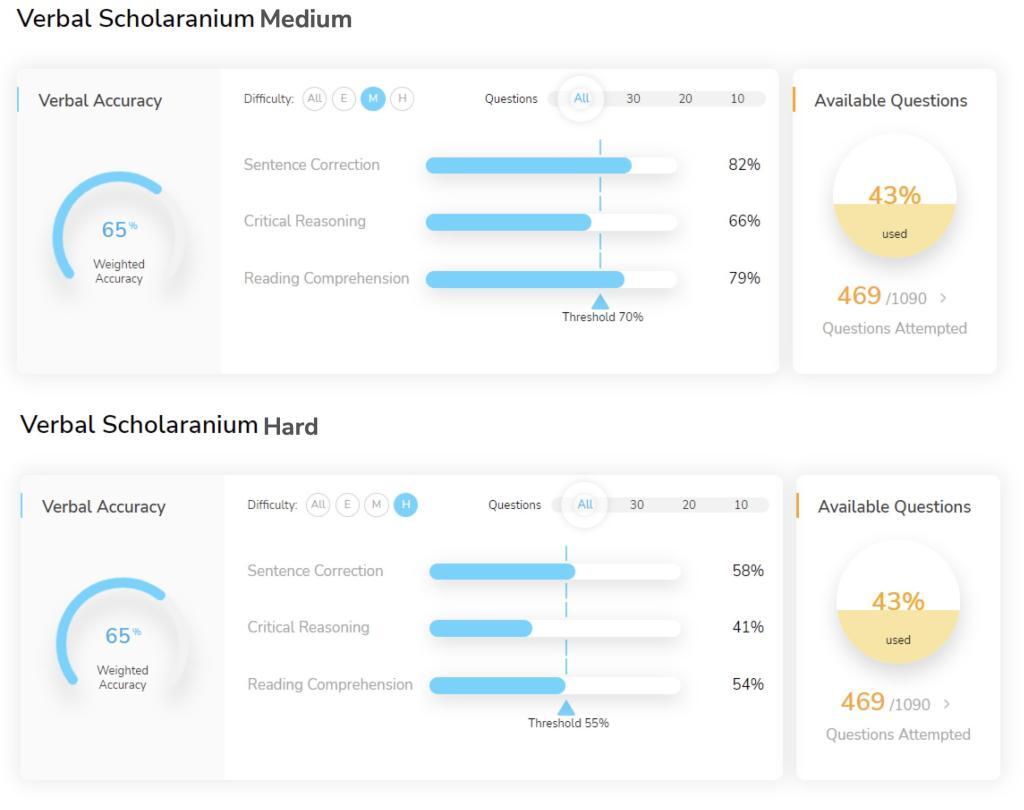
New study habits to conquer over RC
Rajat: What are the things you took from the RC course?
Aditya: Before e-GMAT, I never used to summarize a passage and thought it was only a waste of time. After going through the course, I realized it was essential to recognize what the author was trying to say. It’s mentioned in the concept file that one must read actively and think about why the author has mentioned specific details and what might come out of that information. During the GMAT test, we don’t have that much time, and you might not be able to quickly comprehend what the author is trying to say, but if you immerse yourself in the topic, you’d be able to connect the dots and understand the gist of the passage.
Read this article to know What is GMAT Reading Comprehension Section tests. Find some sample practice questions and tips to master RC.
Rajat: You must also be proud of improving from V31 to V41.
Aditya: I’d credit that to a couple of things I learned from e-GMAT, especially in RC. One of them was summarizing each paragraph after reading. I never had the habit of making notes, but I still did while going through the concept files. After three or four passages, I stopped it because I could sense the gist of the paragraphs after reading them.
I’d credit my V31 to V41 improvement to a couple of things I learned from e-GMAT, especially in RC. One of them was summarizing each paragraph after reading
One of the videos spoke about going through the passage one more time after going through them to get the gist of the paragraph.
It may seem like a small thing, but it is very beneficial. This is especially true for main point question, which is usually the first question and if you get that right, it boosts your confidence. It took me some time to get there, but later I used to take seconds to understand, and the process became very straightforward.
Rajat: That’s the beauty of applying a process; it becomes much easier to reject incorrect options.
Aditya: Even the correct answer doesn’t have the complete solution, which you hope, but you can still clearly see it because everything else is so wrong.
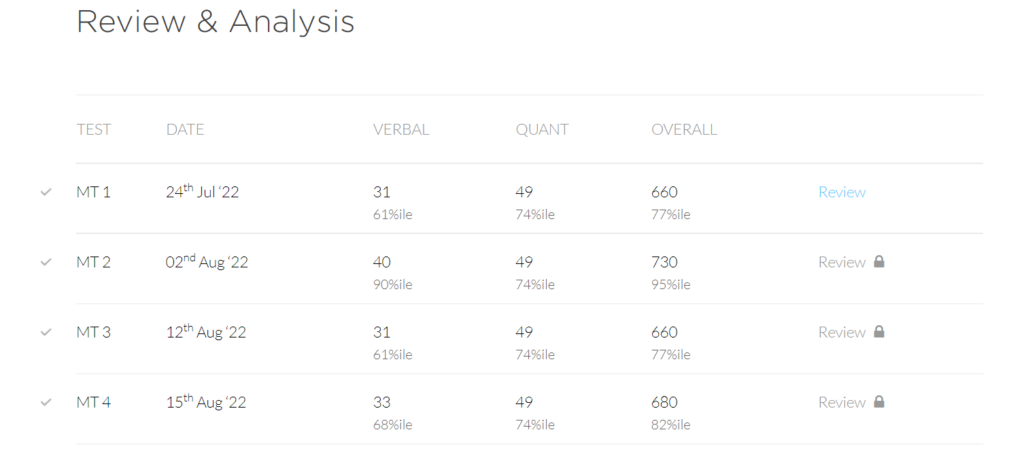
Rajat: You said earlier you did not believe in making notes or summarizing the passages, perhaps because, being a business analyst, you read reports for a living. It may give us a false sense of being able to comprehend well without having to make notes. But there, you read similar stuff, and in the GMAT test, you have different topics requiring much more deliberate effort to comprehend.
Aditya: Exactly. I used to find healthcare-related passages much easier to process as compared to finance or capitalism. In one instance, there was a challenging passage. If I’d followed my approach from the first GMAT attempt, I’d have skipped it entirely, but this time I read the passage 2-3 times, spent one extra minute, and by the end, I was confident that out of four, I got three questions absolutely correct.
One of the initial videos also explained that the ideal time to read a passage is three minutes. Still, if the passage is difficult, you must take the extra minute to ensure you understand it correctly and answer the questions without wasting time.
Rajat: Were you short of time for the verbal section during your GMAT?
Aditya: Surprisingly, no. By the last few of my mock, I was confident I’d not run out of time. Unlike before, RC was now the time saver for me. I had 3 minutes left for the last two questions in the actual test.
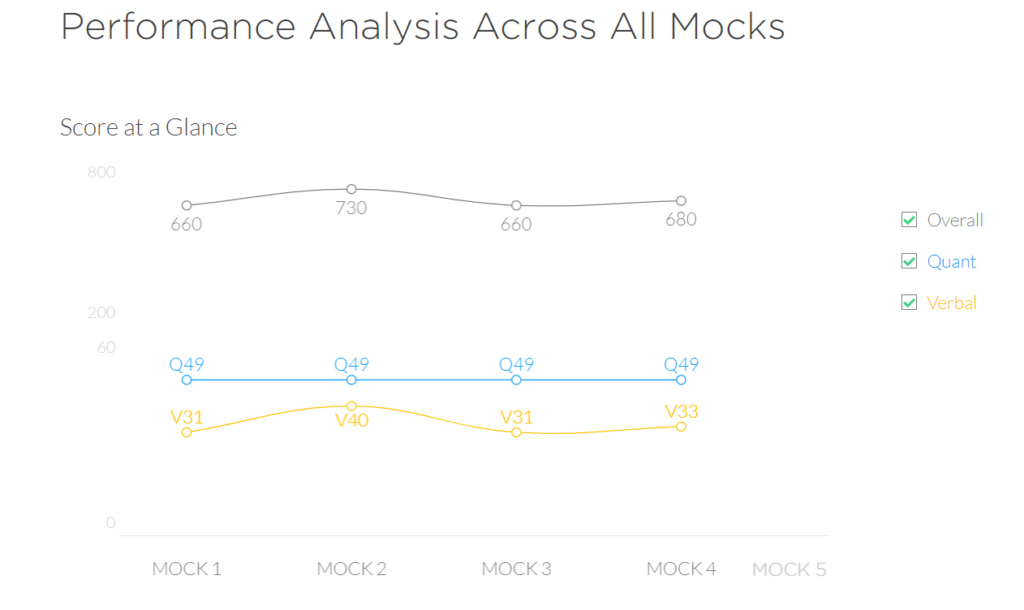
This was not the case with quant. Although I was good at it, I spent 4 minutes on one question and missed the last one.
Three tips for GMAT aspirants
Rajat: If you were to advise someone starting with GMAT prep, what are the three things you recommended doing?
Aditya: I’d suggest anyone at ground zero first take the mock and understand your current level. Analyze it thoroughly and identify your weakest point.
The second is to find a suitable course that fits your requirements. There is plenty of free content available, but you’ll have to find out what out of it is GMAT level and what not. Here you’d waste a lot of time. So, to avoid that, take up a course. And do not jump from one course to another. Just stick to the course, and it’ll all work out eventually.
Rajat: How do you know if a course is working out for you or not? What are the signs?
Aditya: While attempting cementing quiz, when I saw that I could not solve complex questions in standard timing but relaxed timing, I realized I knew the concepts, and the course was taking me in the right direction.
Second, Try to solve more difficult questions than you do with the course. After reaching the threshold score in cementing for all the sub-sections, I’d attempt Official questions to confirm if I can get them right. I felt I was on the right path when I could apply processes I’d learned with the course in those Official questions in the standard timing. While practicing, one must focus on getting the question right, whether relaxed or standard timing.
Rajat: Did you ever write to us during your preparation? What kind of doubts did you have, and what kind of responses did you get?
Aditya: Only 3-4 times for queries around SC and CR. Because all my doubts would get covered in the given solutions on the platform itself, most of my questions were just to confirm if my understanding was correct. The responses I received from Stacey were comprehensive.
Rajat: Thank you so much. I am sure a lot of people would benefit from this.


